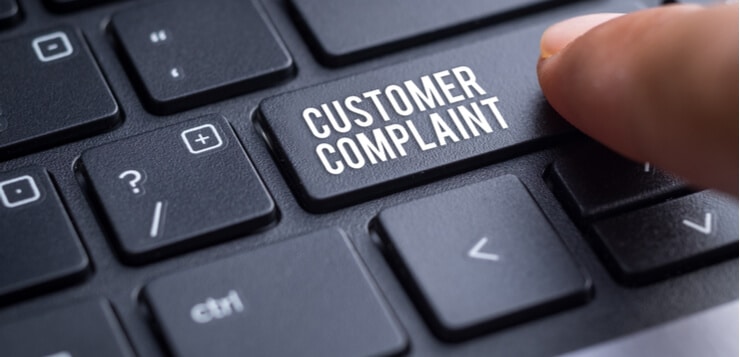On Monday, the Pennsylvania Gaming Control Board put out a public notice in an effort to put a spotlight on the state’s process of resolving complaints and disputes between patrons and online casinos.
The PGCB said it was “reminding the public of the availability of online forms” that help resolve these issues. Under state law, the PGCB is required to investigate all potential non-criminal violations of the Pennsylvania Race Horse Development and Gaming Act and the accompanying regulations.
The PGCB has distinct definitions for a “complaint” and a “dispute.”
“A complaint is a difference of opinion between the licensed gaming entity and the patron, which does not involve money or items of value. A dispute is a claim for a specific amount of cash or merchandise,” the state regulatory agency based in Harrisburg said Monday.
“Patrons that have a complaint or a dispute with a licensed gaming entity in the Commonwealth of Pennsylvania may request that the Board investigate such complaint or dispute,” the PGCB said in the presser. “All patron complaints and disputes are taken very seriously by the Board with each complaint assigned a case number and an investigator. Any criminal violations of the [Gaming] Act alleged by a patron will be referred to the Pennsylvania State Police for investigation.”
For a dispute or complaint involving online casino gambling or online sports betting, the patron must first file a complaint or dispute with the interactive gaming provider.
“This is critical since the PGCB’s interactive form will require entry of a complaint number generated by the interactive gaming provider when you file with them,” the PGCB said.
Patrons have 30 calendar days from the date of the incident to file a complaint or dispute, via the PGCB’s website. If you have any questions about the process, the PGCB asks that you send inquiries to [email protected] for further guidance.
The PGCB stressed that all information regarding a patron’s complaint or dispute is confidential.
Timing of the public notice
Pennsylvania kicked off online casino-style gambling in late May with the launch of online/mobile sports betting. In mid-July, the state’s first PA online casinos opened for business. The Keystone State’s online casino gambling industry is only about two months old.
While Pennsylvania is relatively new to the game, other states have a longer history with online betting. The PGCB notice came in the wake of some recent stories involving online gaming complaints or disputes elsewhere. In New Jersey, an online poker player was on the wrong side of an apparent software glitch deep in a poker tournament late last month. The glitch occured on the WSOP online poker platform, which will be coming to PA, likely in a matter of weeks or months. Pennsylvania hasn’t kicked off online poker yet.
The WSOP platform has also been under some criticism for delays involving customer withdrawals. The WSOP platform is currently available in New Jersey, Nevada, and Delaware.
Those are just two recent examples, but complaints/disputes are relatively rare.
A hypothetical example of a complaint/dispute between a patron and an online betting operator could involve promotions or bonus offers. Thanks to the newness of online gaming, operators are offering a plethora of promotions to get players to sign up and deposit. According to the Pennsylvania online gambling regulations, the promotions can’t be ambiguous.
“The terms and conditions must be clear and unambiguous, especially where bonuses or promotions are limited to certain tables or non-tournament play, or when other specific conditions apply,” reads just one section of the more than 100-page list of Pennsylvania online betting regulations.
Patrons would first need to speak with the online betting operator to try to resolve the issue, and if it can’t be resolved, the PGCB would potentially get involved.






